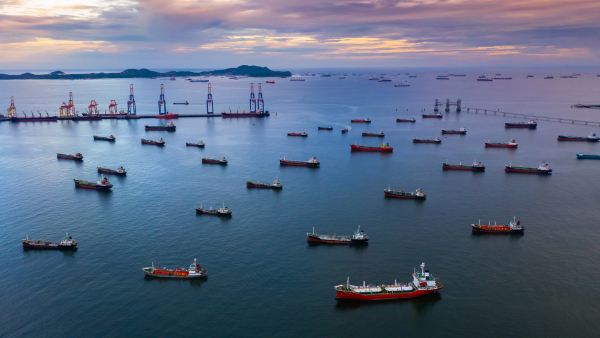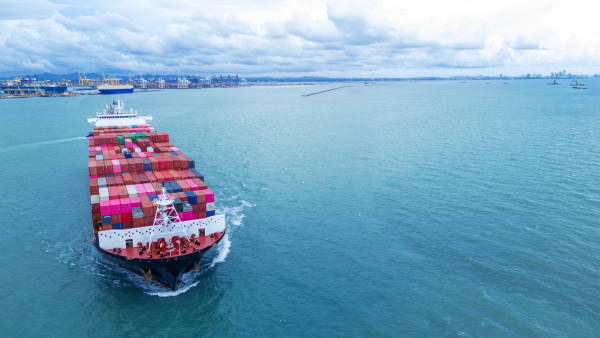R&D Tax Credits in the Maritime Sector are a crucial incentive designed to foster innovation and technological advancements within this vital industry. These credits offer financial relief to maritime companies that invest in developing new or improved products, processes, or services. By reducing the tax burden, R&D tax credits enable businesses to allocate more resources towards cutting-edge research, enhancing growth and competitiveness. This support is essential for driving sustainability and efficiency in maritime operations, ultimately benefiting the broader economy and ensuring the sector remains at the forefront of global trade and transportation.
Importance and Challenges in Decarbonising the Maritime Sector
The maritime industry is at the heart of our interconnected world, playing a vital role in global commerce. At its core, the industry includes the transportation of goods, products, and people across the sea. Globally, ships facilitate over 80% of the volume and approximately 70% of the value of world trade as of 2021. Within the UK, due to its island status, the shipping industry handles over 95% of global trade by volume. This underscores the sector’s size and importance, with maritime trade expected to grow by at least 2% annually from 2024 to 2028. Without action, emissions could reach 130% of their 2008 levels by 2050, highlighting the urgent need for decarbonisation.

However, the sector’s complexity, size, and diversity make this challenging. The maritime industry involves various parties, each with different interests and responsibilities. Also, ships have a long lifespan, typically 20 to 30 years, and are not easily retrofitted with new technologies, which might not always be profitable. Therefore, the transition to low or zero-carbon requires a combination of technological, operational, and policy solutions and initiatives. The International Maritime Organisation (IMO) aims to reduce carbon emissions from international shipping by 40% by 2030 and 70% by 2050, compared to 2008 levels. The IMO also reduced sulphur content in fuels from 3.5% to 0.5% as of January 2020, creating policy pressure for long-term decarbonisation solutions.
UK’s Maritime R&D Strategy: From Funds to R&D Tax Credits
Building on global efforts to decarbonise the maritime sector, the UK has a clear vision and ambition for the future of its maritime sector, as expressed in Maritime 2050, a strategy developed by government and industry in 2019. It covers seven themes essential for the UK to remain competitive and sustainable, providing recommendations and route maps for achieving various goals. One key initiative reflecting the UK’s commitment to Maritime 2050 is the Clean Maritime Demonstration Competition (CMDC), a multi-year program funding collaborative R&D projects to develop and demonstrate clean maritime solutions. The CMDC, now in its fourth round, aims to foster innovation and sustainability in the maritime sector. Most research projects and solutions in the maritime industry focus on:
- Alternative fuels: such as ammonia, hydrogen, methanol, biofuels, and synthetic fuels.
- Fuel cells and batteries: such as proton exchange membrane fuel cells, solid oxide fuel cells, and lithium-ion batteries, or electrolysers in combination with other technologies.
- Energy efficiency and management: such as waste heat recovery, propulsion optimisation, and smart energy systems.
- Post-combustion solutions: emission reduction through more efficient engines with stoichiometric combustion and capture, such as exhaust gas cleaning systems, carbon capture and storage, scrubbers, and selective catalytic reduction.
These solutions demonstrate that many sectors and industries, from mechanical and electrical engineering to clean energy companies, are cooperating to develop innovative solutions. R&D tax relief is crucial for supporting these technologies, as it provides the financial backing needed to advance these innovations.
The Importance of R&D Tax Specialists for Clean Tech R&D Claims
To claim tax relief for your R&D activities in the maritime sector, you need to know what counts as R&D and how to apply for it. The amount of tax relief your company can receive depends on the size and nature of your business, the scale and cost of your R&D projects, and whether you qualify for one of the UK’s four active R&D tax credit schemes. For financial years starting up to 31 March 2024, these include the SME R&D Tax Relief and the R&D Expenditure Credit (RDEC). For financial years starting from 1 April 2024, the schemes include the Enhanced R&D Intensive Support (ERIS) for loss-making SMEs, providing additional support for SMEs heavily engaged in R&D activities, and the Merged R&D Expenditure Credit Scheme, which consolidates previous RDEC provisions into a single framework. Each scheme has specific eligibility criteria, rates of relief, and documentation requirements, making it essential for companies to understand which scheme applies to their situation. Understanding these criteria can be complex, particularly regarding what qualifies as R&D. Many businesses may overlook the full scope of eligible activities, potentially missing out on significant claims.

Examples of qualifying R&D in Marine Engineering, but not limited to:
- Developing engines that can use alternative fuels such as hydrogen, ammonia, or biofuels.
- Innovating combustion processes to maximise fuel efficiency and minimize emissions.
- Fuel cells with greater capabilities and efficiency, such as proton exchange membrane (PEM) fuel cells or solid oxide fuel cells.
- New or improved software for navigation, communication, or data analysis with applications in marine environments.
- Developing a new or improved method for marine biofouling detection and prevention.
- New energy capture systems for maritime use.
While these examples are some of the innovations in the maritime industry, the underlying technologies and innovations are not limited to this sector. This is why consulting with experts is essential. Given the high expenditure costs and frequent changes to regulations, accurately identifying and calculating qualifying costs is crucial. The likelihood of an enquiry from HMRC also underscores the importance of expert guidance.
How FI Group Helps with R&D Tax Credits in the Maritime Sector
At FI Group, our experts can help you understand eligibility criteria, navigate ambiguities, and maximise your R&D tax relief claims. We assist in identifying your qualifying expenditure, preparing and submitting your claims to HMRC, and providing Claim Resolution Services if necessary. We also advise on optimising your R&D strategy and processes and accessing other funding opportunities for your marine innovation. Our team, with backgrounds in various engineering fields and a strong grasp of the R&D tax credit scheme, understands your technical challenges and solutions.
